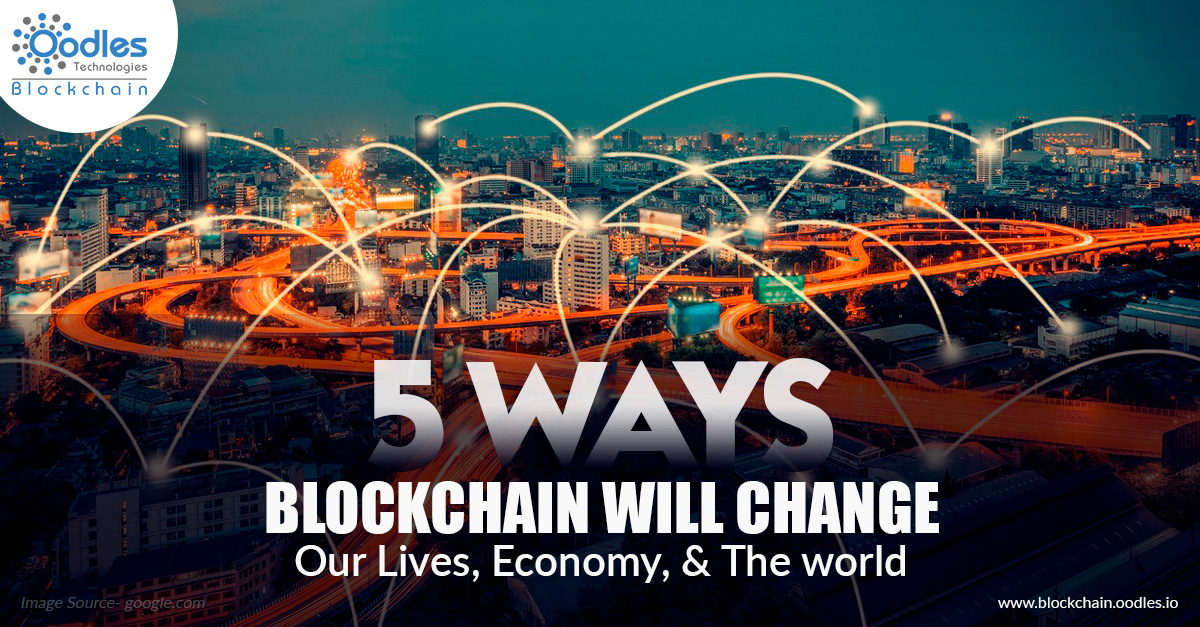-
January in 1999, the internet has taken the world by storm. Its public recognition was reaching an all-time high. Back then, only a few people had an idea of what the internet was, or just how influential it would be in the next few years. However, now we've moved past the learning phase presented by the internet. Now, we very well know how dependent our lives have become on the internet. Similarly, Blockchain technology is presenting itself as the new internet. Experts believe that initially, people were reluctant to foresee the opportunities presented by Blockchain due to the Bitcoin buzz, but now they gradually have started understanding what Blockchain can do and how it can help transform our lives.
This article briefly outlines five surprising ways blockchain is transforming the world.
Monitoring and tracking charity donations:
Is the fund you donated to that charity for children's welfare reaching those children, or will it be deposited to the bank accounts of the CEOs who run the charities? As per a study conducted by Charity Navigator, executives of some of the largest and most prestigious charity firms in the U.S. get salaries exceeding $1 million. However, if charities start accepting cryptocurrencies, it can lay the foundation for increased transparency.
By monitoring the wallet of your charity of choice, you can see their spending of funds. Significantly, it will ensure that the money given to the charity for a good cause is being used for good.
The unbalanced economy:
Soon, microtransactions would become a societal standard. If it happens, people will be able to send a few bucks to the writer of an incredible article they read before bed, to the Instagram influencer they've been following all the while, or to that indie artist who just launched his new EP as a free download. These small tips can be done within a single click and represent a threat to the latest advertising models. As of today, cost-effective cryptocurrencies such as Nano or Litecoin could best represent the potential for micropayments.
Transfer Money Cheaply:
Remittances, when migrants make cross-border payments, or in other words send money to their families back home, are quite fee-heavy transactions. Usually, they eat up as much as 7% of the money that is being sent. It's not only the middle-class American who will get benefit from the low cost associated with transferring cryptocurrencies but also aid the low-income laborer who can't afford to pay 7% of his $100/month paycheck.
Reducing Middlemen Fees:
The advent of the internet+ smartphone combination has provided us with access to incredible networks for the last couple of years. For instance, Uber offers us ride-sharing, Airbnb gives us overseas accommodation, and Postmates brings peer-to-peer food delivery. However, in return for plugging into these networks, the company which connects us to a network charges a hefty amount. Here, Blockchains can remove the need of having a centralized authority. Instead, it will allow us to establish these same networks using blockchain-based decentralized applications, which will prove to be quite cost-effective.
Better Governance:
It could surprise many, especially outsiders who think of the Blockchain revolution as a set of optimistic libertarians wanting to form a "new world." Nevertheless, Blockchain technology has a surprising amount of applicability within governments. Whether it's a land registry, an identity solution, birth and death certificates, tokenizing energy, or data integrity, Blockchain has the power to influence governments by allowing them to significantly reduce costs.

Our Offices
INDIA
Emaar Digital Greens, Sector 61,
Gurugram, Haryana
122011.
Welldone Tech Park,
Sector 48, Sohna road,
Gurugram, Haryana
122018.













